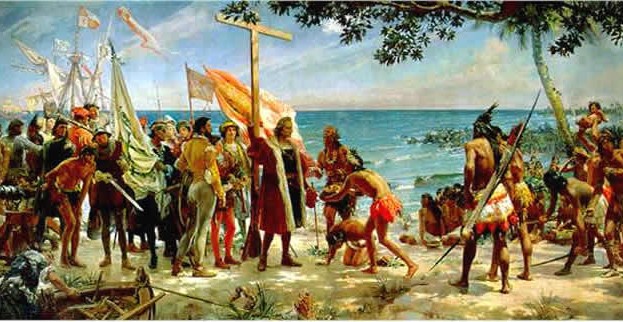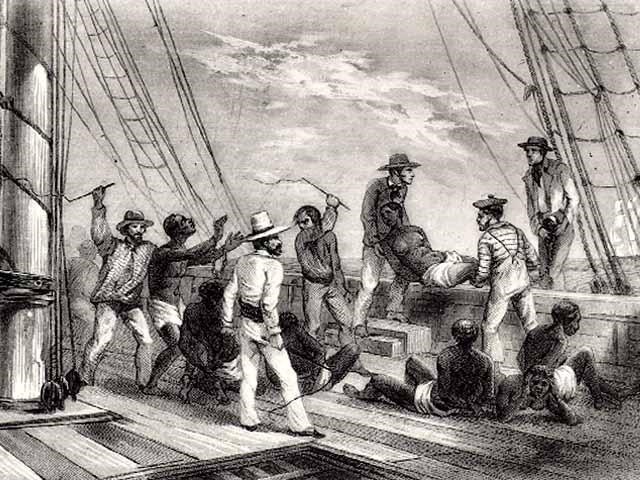[On October 16, the Unit for Criticism and Interpretive Theory hosted a lecture by Shona Jackson (Texas A&M) entitled “Postcolonial Theory, Sort of, Not Really, Maybe Not at All” as part of the Fall 2018 Modern and Critical Theory Lecture Series. Below is a response to the lecture from Md Alamgir Hossain (English).] “Postcolonial Theory, Sort of, Not Really, Maybe Not at All”: Shona Jackson on Postcolonial Theory and Indigenous Labor in the Caribbean Written by Md Alamgir Hossain (English) Professor Shona Jackson began her lecture by dissociating herself from postcolonial studies and explaining that the lecture was not going to be about postcolonial theory per se. She noted, however, that because of the region she works with--the Caribbean--her work is largely understood as being postcolonial. Her lecture was divided into two parts: the postcolonial and the non-postcolonial. The first part of the talk addressed issues such as the waning status of postcolonial studies in Western academia, the limitations of postcolonial theory, the critical role of postcolonial theory in developing her own research focus, and the still unexhausted possibilities of the field. The second part, which centered on work from her current book project, focused on questions of Indigenous labor in the Caribbean. Specifically, her research uncovers the erasure of Indigenous labor from mainstream history and seeks to re-write the labor history of the Caribbean so that Indigenous labor figures centrally rather than marginally. Jackson holds that the status of postcolonial studies is waning in academia and she attributes this decline to “the add-on function of intersectionality and the politics of inclusion, as well as the prominence of other fields such as Environmental Studies, Disability Studies, and Latinx Studies.” She also finds problems with postcolonial theory’s hybrid methodology, which is based partly on post-structuralism and partly on Marxism. For her, postcolonial theory’s central flaw is its methodological tension between structural Marxism and post-structuralism. Even though Jackson does not locate her own work in the field of postcolonial studies, she acknowledges that without postcolonial theory, her work might not have emerged in its present form. Jackson refers to three moments of reading with and against postcolonial theory that open up the space for her current work on Indigeneity. These three moments relate to postcolonial notions of nation, subjectivity, and capital. Postcolonial theory perceives the nation as a cultural sphere that can be apprehended in terms of its modes of writing and representation, even if it was an uneasy composition of fragments. This conception of the nation is based on the assumption that all postcolonial cultures wrote or articulated themselves in terms that can always be apprehended. Jackson finds this view problematic because “this incessant legibility function obscures the settler state and its relation to Indigenity.” She is also critical of postcolonial understandings of subjectivity, which see subjectivity only in terms of a positive or negative relationship to the market. The postcolonial critique of capital, which portrays the subaltern as “always already the would-be liberal subject of global capital” also appears flawed to her and inspires her to explore the postcolonial subject’s proper relation to capital. Pointing to these limitations of postcolonial theory, Jackson asserts that postcolonial theory cannot apprehend “our capacity to rewrite ourselves” because it is not “a repetition but an inscription.” This inability of postcolonial theory leads her to the second part of her talk, where she rewrites the labor history of Indigenous people in Guyana or more broadly in the Caribbean. At the beginning of the second part of the talk, Jackson refers to Guyana as an example to show the different attitudes and claims of Creoles and Indigenous people to the postcolonial nation-state based on their past labor. While Creoles claim belonging and rights in the state by the fact that their progenitors performed modern labor upon the land, Indigenous people do not have any such claim because in the official history they did not do formative work to any real degree. Even in the 21st century, she argued, we do not have any real way to talk about the actual work that Indigenous people have done in the Caribbean. Jackson examines how and why Indigenous people’s labor disappeared from mainstream history and how we can recover their histories of work in regional labor history. [caption id="attachment_1845" align="alignnone" width="623"] Fig. 1. Taíno: Indigenous Caribbeans. (Source)[/caption] The standard narrative attributes the disappearance of Indigenous labor to the arrival of Blacks in the Caribbean as if Black people replaced the natives. This view explains the impossibility of envisioning these two groups’ co-existence within the same time frame. But Jackson attempts to read together these two labors that, according to the mainstream narrative, cannot operate in the same time period. In her attempt to read dominant labor history against the grain, she returns to a crucial historical moment, the moment of conversion in the fifteenth and sixteenth centuries, when both Black and Indigenous people first linked up. She also draws on Hannah Arendt’s distinction between labor and work to develop her argument. Arendt sees labor as life itself, as something that we need to do to reproduce ourselves, while she frames work as that which “‘provides an artificial world of things, distinctly different from all natural surroundings”. This distinction between labor and work creates space for Jackson to think about the action or labor that Indigenous people do. Analyzing Columbus’s first letter to Ferdinand and Isabella, and Las Casas’s writings, Jackson shows that Indigenous labor is always seen through the lens of the European economy and in relation to the scarcity of Europe. Whenever Indigenous people’s labor is referenced, it is converted either to excess/surplus or to work for the Europeans. This misreading of Indigenous labor by the Europeans transforms it into what Arendt categorizes as “not work,” and thus having no value at all. On the other hand, when enslaved Blacks are imported, they come to be associated with needs rather than scarcity or abundance, and hence their physical labor is seen as something that produces material gain. In other words, slave labor is converted to “work” having value within the European economic system. These different conversions and articulations of Indigenous and Black labors by European discourses relegate Indigenous labor to the margin of Caribbean labor history and ultimately cause its complete erasure. [caption id="attachment_1846" align="alignnone" width="640"]
Fig. 1. Taíno: Indigenous Caribbeans. (Source)[/caption] The standard narrative attributes the disappearance of Indigenous labor to the arrival of Blacks in the Caribbean as if Black people replaced the natives. This view explains the impossibility of envisioning these two groups’ co-existence within the same time frame. But Jackson attempts to read together these two labors that, according to the mainstream narrative, cannot operate in the same time period. In her attempt to read dominant labor history against the grain, she returns to a crucial historical moment, the moment of conversion in the fifteenth and sixteenth centuries, when both Black and Indigenous people first linked up. She also draws on Hannah Arendt’s distinction between labor and work to develop her argument. Arendt sees labor as life itself, as something that we need to do to reproduce ourselves, while she frames work as that which “‘provides an artificial world of things, distinctly different from all natural surroundings”. This distinction between labor and work creates space for Jackson to think about the action or labor that Indigenous people do. Analyzing Columbus’s first letter to Ferdinand and Isabella, and Las Casas’s writings, Jackson shows that Indigenous labor is always seen through the lens of the European economy and in relation to the scarcity of Europe. Whenever Indigenous people’s labor is referenced, it is converted either to excess/surplus or to work for the Europeans. This misreading of Indigenous labor by the Europeans transforms it into what Arendt categorizes as “not work,” and thus having no value at all. On the other hand, when enslaved Blacks are imported, they come to be associated with needs rather than scarcity or abundance, and hence their physical labor is seen as something that produces material gain. In other words, slave labor is converted to “work” having value within the European economic system. These different conversions and articulations of Indigenous and Black labors by European discourses relegate Indigenous labor to the margin of Caribbean labor history and ultimately cause its complete erasure. [caption id="attachment_1846" align="alignnone" width="640"] Fig. 2. The Middle Passage. (Source)[/caption] Jackson also reads the history of Indigenous labor in relation to the Middle Passage to recover this lost history and give native labor its proper place. She observes that while the Middle Passage converts Blacks into valuable labor, it does not add any value to the persons of Indigenous people although, like the Blacks, a large number of Indigenous people were forcibly relocated and sold into slavery. She argues that the forcible relocation of Indigenous peoples to work for the physical and the metaphysical is not only a Middle Passage in the Caribbean, but also a “prior or foundational Middle Passage” that links Africa, the Caribbean and the Americas, and shapes the future economies and demography of these territories. She urges that we should recognize the participation of both Blacks and Indigenous peoples “in the process of adding and subtracting value just as both were involved in the Middle Passages that oriented around the conversion.” Recognizing this fact makes us aware of Indigenous labor being as foundational for European modernity as the African Middle Passage and enables us to read Indigenous labor back into Caribbean history.
Fig. 2. The Middle Passage. (Source)[/caption] Jackson also reads the history of Indigenous labor in relation to the Middle Passage to recover this lost history and give native labor its proper place. She observes that while the Middle Passage converts Blacks into valuable labor, it does not add any value to the persons of Indigenous people although, like the Blacks, a large number of Indigenous people were forcibly relocated and sold into slavery. She argues that the forcible relocation of Indigenous peoples to work for the physical and the metaphysical is not only a Middle Passage in the Caribbean, but also a “prior or foundational Middle Passage” that links Africa, the Caribbean and the Americas, and shapes the future economies and demography of these territories. She urges that we should recognize the participation of both Blacks and Indigenous peoples “in the process of adding and subtracting value just as both were involved in the Middle Passages that oriented around the conversion.” Recognizing this fact makes us aware of Indigenous labor being as foundational for European modernity as the African Middle Passage and enables us to read Indigenous labor back into Caribbean history.